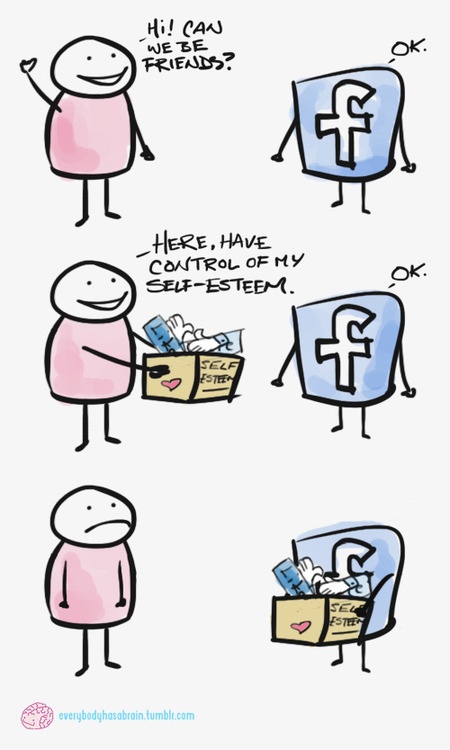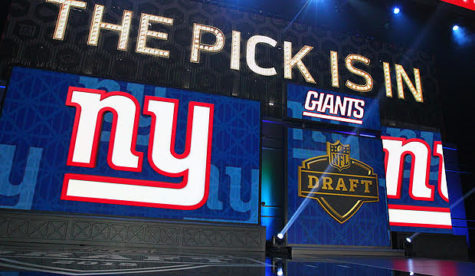TBH
Most people can agree that modern social media culture has its upsides and its downsides. Technology is inherently a double-edged sword. And generally, the advantages are worth the costs. But not always. A new app called TBH has recently risen to popularity, skyrocketing to the #3 social media on the app store. While it will almost certainly fade into obscurity almost as quickly as it came, this app is essentially the crystallization of certain aspects of modern social media culture, and provides an interesting microcosm to examine them. Before you click away because you’re already an expert on social media, let me present my case. Here, I will be examining and analyzing TBH. Through this, I hope to gain understanding of social media as a whole, its effects on us as people, and why we are drawn to apps like TBH.
First, I should probably explain the app itself. If you are already familiar with the app, feel free to skip or skim this paragraph. Or don’t. Do what you want. For those of you who are reading this in the future long after this little bundle of joy has faded from relevance, the app is essentially an anonymous comment system. Users are given little questions such as “who has the best smile?” and offered a choice from four randomly selected friends of theirs. The lucky friend with the pearly whites is then notified that some anonymous friend of theirs thinks they have the best smile out of those four, and is awarded a gem.
By far the most common use of the app is simply as a source of compliments. Feeling down? Open the app up and you are met with a backlog of compliments you’ve received. While this may be sweet at face value, I like to break things down and examine them more closely, beyond face value. Why do we need a constant stream of anonymous compliments to maintain our self-esteem? This era of social media seems to have spawned a sort of viral narcissism, which has taken root to some degree in almost all social media natives. After all, what is the purpose of social media if not to show off and get recognition for doing so? According to an article in Psychology Today entitled Feeding the Narcissist, many narcissists show a characteristic feeling of internal frailty or emptiness, which they then attempt to counteract with a constant stream of external support. This underlying insecurity is what motivates the insatiable drive for compliments, positive reinforcement, recognition and acknowledgement that we typically associate with narcissism. While I am not suggesting Facebook or Instagram have single-handedly created a generation afflicted with full-blown narcissistic personality disorder, I believe that for many of us the idea of internal insecurity counterbalanced by a stream of external support may be more familiar than we would like to admit.
So then, I hear you ask, what is the problem with TBH? Does it not provide the stream of support you just said we all rely on to maintain our self-esteem? This is a fair point. The app does serve a necessary function in today’s society. I would like to note that TBH is purely a product of its time. The app itself is not evil – it was created with good intentions, and does an excellent job of fighting cyberbullying. It is an improvement over its predecessors, and is remarkably positive overall. What scares about TBH me is the fact that it is necessary. That we have all drained and desiccated our egos to such an extent that “likes” and “smiles” are no longer enough, and we’ve had to move on to a stream of anonymous compliments. TBH is pretty much as straightforward and blatantly self-aggrandizing as it gets. It’s more direct and thus, more powerful. Facebook and its mere “likes” were just a gateway drug. TBH, then, is the harder stuff. TBH is where it’s at nowadays. Keeping up with the metaphor, TBH is like emotional cocaine. Sure, cocaine is necessary, and serves a very important function.
But only to an addict.
So, say you generally agree with my analysis. I’ve convinced you that we’re a generation reliant on compliments to prevent our hollowed-out egos from caving in. How did this happen? How did we get to where we are today? Allow me to offer the explanation I’ve come up with. Since the beginning of civilization, humans have needed to maintain our self-esteem. It is incredibly important to us. After all, it’s on Maslow’s hierarchy of needs right after safety and physical well-being. Then the question is, how does social media impact our self-esteem? Steve Furtick pretty much nailed it when he said, “The reason we struggle with insecurity is because we compare our behind-the-scenes with everyone else’s highlight reel.” What kind of stuff do you post on social media? Day to day life? Doing laundry? Of course not. You post the most impressive, most fun, most glamorous bits of your life. Thus, when you’re scrolling through your feed, that is all you see from other people as well. The highlight reel. Seeing these highlights presented in rapid succession as if they were daily life leads to comparisons and a feeling of inferiority, and creates a drive to post something impressive in order to match up, and repair the ego damage with likes and comments. Others see those posts, and the same thing happens to them. As they post more to compensate, it creates a cycle, forcing our outward appearance on social media to become ever more glamorous while self-esteem craters.
This leads to a variety of effects, none of which are good. It creates a feeling that there is a disconnect between who we are in reality and who we are on social media, known as “impostor syndrome”. It sucks up time and energy. It reduces enjoyment of life, since we’re busy taking pictures of our food and our sunset hikes rather than really enjoying them. And it necessitates apps and mechanisms like TBH.
Now, this is clearly not the best situation for us to be in, as individuals or as a generation. So how can we escape this vicious cycle? I’ll admit, I’m kind of at a loss here. Social media has been so deeply integrated into our lives that it’s very hard to disentangle ourselves from it. The barbs have sunk deep. So maybe the best way to address this issue is to change and evolve social media and how we use it, rather than backtracking. In my opinion, the best way to stop the problem is to be aware of the problem. If people are made aware of what’s going on, hopefully the public mindset will shift to favor social media platforms which don’t encourage this kind of vicious cycle. And if what the public wants changes, hopefully corporate America will do its job and create something new. A type of social media that’s healthier for all of us. If we can do this, we can stamp out digital narcissism. We can take our self-worth and self-esteem back into our own hands. We can reclaim our lives and spend our time living for ourselves rather than for our Instagram pages. I don’t claim to have the solution. But I think that might be a start.












Ms. Carrigan • Oct 2, 2017 at 2:50 pm
Recently published book addresses this issue…Irresistible:The Rise of Addictive Technology and the Business of Keeping Us Hooked by Adam Alter